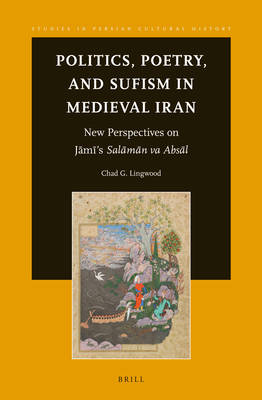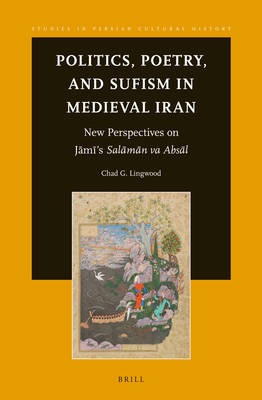
- Afhalen na 1 uur in een winkel met voorraad
- Gratis thuislevering in België vanaf € 30
- Ruim aanbod met 7 miljoen producten
- Afhalen na 1 uur in een winkel met voorraad
- Gratis thuislevering in België vanaf € 30
- Ruim aanbod met 7 miljoen producten
Zoeken
Politics, Poetry, and Sufism in Medieval Iran
New Perspectives on Jāmī's Salāmān Va Absāl
Chad Lingwood
€ 218,45
+ 436 punten
Omschrijving
In Politics, Poetry, and Sufism in Medieval Iran Chad Lingwood offers new insights into the political significance of poetry and Sufism at the court of Sulṭān Ya'qūb (d. 896/1490), leader of the Āq Qoyūnlū. The basis of the study is Salāmān va Absāl, a Persian allegorical romance 'Abd al-Raḥmān Jāmī (d. 898/1492), the great Timurid belletrist and Naqshbandi Sufi, dedicated to Ya'qūb. Lingwood demonstrates that Salāmān va Absāl, which modern critics have dismissed as 'crude' and 'grotesque, ' is a sophisticated work of political and mystical advice for a Muslim ruler. In the process, he challenges received wisdom concerning Jāmī, the Āq Qoyūnlū, and Perso-Islamic advice literature. Significantly, the study illustrates the extent to which Jāmī's compositions integrated the Timurid and Āq Qoyūnlū realms.
Specificaties
Betrokkenen
- Auteur(s):
- Uitgeverij:
Inhoud
- Aantal bladzijden:
- 294
- Taal:
- Engels
- Reeks:
- Reeksnummer:
- nr. 5
Eigenschappen
- Productcode (EAN):
- 9789004254046
- Verschijningsdatum:
- 11/12/2013
- Uitvoering:
- Hardcover
- Formaat:
- Genaaid
- Afmetingen:
- 163 mm x 241 mm
- Gewicht:
- 589 g

Alleen bij Standaard Boekhandel
+ 436 punten op je klantenkaart van Standaard Boekhandel
Beoordelingen
We publiceren alleen reviews die voldoen aan de voorwaarden voor reviews. Bekijk onze voorwaarden voor reviews.








